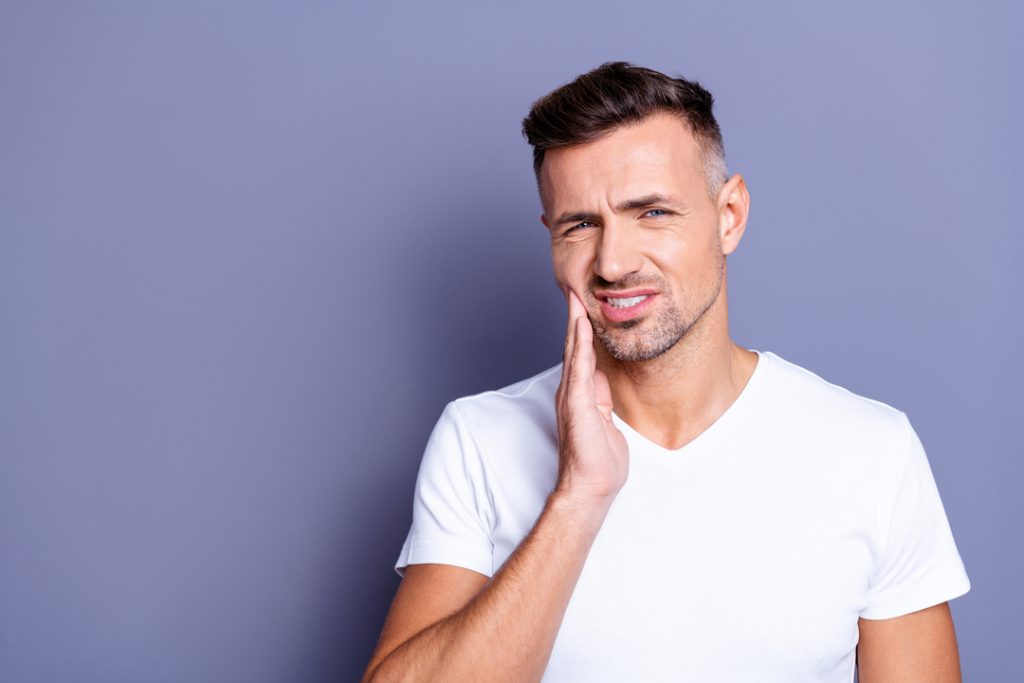Looking for Expert-Level VA Claim Answers?📱Call Us Now! 737-295-2226
Bruxism, also known as teeth grinding or jaw clenching, may seem like a minor issue at first, but for veterans it can become a serious condition that damages teeth, disrupts sleep, and leads to jaw disorders or chronic pain.
Many veterans don’t realize that bruxism can qualify for VA disability benefits, even though the VA doesn’t assign it a stand-alone diagnostic code.
In this guide, we’ll explain how the VA rates bruxism, when it may qualify as a secondary condition, and the evidence you’ll need to strengthen your claim.
Table of Contents
Summary of Key Points
- Bruxism refers to the involuntary grinding or clenching of teeth, often during sleep or periods of stress.
- The VA doesn’t have a specific diagnostic code for bruxism, but may recognize it as a secondary condition tied to other service-connected disabilities.
- Common causes of bruxism in veterans include PTSD, anxiety, sleep disorders, chronic stress, or medication side effects.
What is Bruxism?

Bruxism is characterized by the grinding, clenching, or gnashing of teeth. It can occur while awake (awake bruxism) or during sleep (sleep bruxism).
While occasional teeth grinding is generally harmless, chronic or severe bruxism can lead to dental damage, jaw disorders, headaches, and other health issues.
Common Symptoms
- Worn, cracked, or damaged teeth
- Jaw pain or tightness
- Morning headaches
- Earaches or a sensation of fullness in the ear
- Disrupted sleep
What Causes Bruxism in Veterans?
Veterans may face unique risk factors for bruxism due to their military experiences, including:
- Post-Traumatic Stress Disorder (PTSD): High stress and mental health conditions can lead to teeth grinding.
- Sleep Disorders: Conditions like insomnia or sleep apnea can exacerbate sleep bruxism.
- Chronic Stress and Anxiety: Long-term stress may physically manifest as jaw clenching or teeth grinding.
- Traumatic Brain Injuries (TBIs): Neurological disruptions from TBIs can contribute to bruxism as a secondary symptom.
- Medication Side Effects: Certain medications, such as selective serotonin reuptake inhibitors (SSRIs), may list bruxism as a potential side effect.
Related: Bruxism Secondary to PTSD
How the VA Rates Bruxism
The VA doesn’t have a specific rating for bruxism. Instead, the condition is evaluated based on its symptoms and any secondary issues it causes under the Schedule for Rating Disabilities.
VA Rating for Tooth Loss
If your bruxism leads to tooth loss, you may qualify for a VA disability rating under diagnostic code (DC) 9913, with ratings ranging from 0% to 40%.
Keep in mind that tooth loss alone is not rated by the VA; it must be due to a service-related injury, accident, disease, or illness and not caused by aging.
In addition, if false teeth or prostheses can replace your missing teeth, you’ll likely receive a VA rating of 0%.
VA Rating for Temporomandibular Disorder
The VA rates temporomandibular disorder (TMD) under diagnostic code 9905, with ratings from 10% to 50% based on jaw range of motion and functional limitations.
TMD encompasses a range of jaw conditions, including those affecting the temporomandibular joint (TMJ), the hinge connecting your jawbone to your skull.
Bruxism as a Secondary Condition
The VA frequently recognizes bruxism as a secondary condition to other service-connected disabilities.
For example, veterans with PTSD, anxiety disorders, or traumatic brain injuries (TBIs) may develop bruxism as a physical manifestation of stress or neurological disruption. See our post on bruxism secondary to PTSD HERE.
Similarly, medications prescribed for mental health conditions can have side effects that include teeth grinding or jaw clenching.
Establishing bruxism as a VA secondary condition involves:
- A current medical diagnosis of bruxism
- A service-connected primary condition
- A medical nexus linking bruxism to your primary service-connected condition
How to Get VA Disability for Bruxism
You can apply for VA disability online or by completing and submitting VA Form 21-526EZ via mail, fax, or in person at a VA regional office.
Remember, the time it takes for the VA to process your claim depends on several factors, including the complexity of your case, an incomplete application, and the VA’s current workload.
You can always check the status of your VA claim online.
Tips for Filing a VA Claim for Bruxism
While there is no guarantee when filing for VA benefits, there are several ways to strengthen your claim.
- Gather Relevant Evidence: Compile medical records, dental assessments, and lay statements describing how bruxism affects your life.
- Highlight Functional Impairments: Document how bruxism impacts eating, speaking, or sleeping.
- Obtain a Nexus Letter: This can be critical evidence connecting bruxism to your service-connected condition.
Need a Nexus Letter for Your Secondary VA Claim?
Trying to get a high-quality Nexus Letter to service-connect your bruxism?
WE GOT YOUR SIX!
Veterans who become members of the VA Claims Insider Elite program can get access to our preferred provider network who can potentially write VA Nexus Letters at reduced rates.
Why pay $1,500 to $2,000 for a Nexus Letter when you can get one for 60-70% off?
Click HERE to book a date and time to speak with a VA claim expert (no-obligation, no high-pressure sales tactics) or call us right now at: (737) 295-2226.
Conclusion
Bruxism may not have its own diagnostic code, but that doesn’t mean veterans can’t get the VA benefits they’ve earned. Whether your teeth grinding has led to tooth loss, TMJ disorder, or is tied to a service-connected condition like PTSD or sleep apnea, the VA must consider how it impacts your daily life.
The key is clear documentation: a current diagnosis, medical or dental records, and a strong nexus letter if you’re filing bruxism as a secondary condition.
Want Expert-Level Support for Your VA Disability Claim? WE GOT YOUR SIX!
- VA Claims Insider is the #1 most trusted name in VA disability claims.
- Work directly with a VA claims coach who can educate you through the process.
- 25,000+ disabled veterans served in our membership programs since 2016.
- 30% average rating increase for veterans who complete our #1 rated Elite program.
- 4.7/5.0 average rating out of 5,500+ total reviews; over 4,500 5-star reviews.
FAQs | Frequently Asked Questions
Is there a VA rating for bruxism?
There is no specific VA disability for bruxism; instead, the VA typically rates bruxism by evaluating your symptoms and any secondary issues it causes.
What are common challenges in filing a bruxism VA claim?
Challenges can include the lack of a specific bruxism rating, insufficient medical evidence, and difficulty establishing a connection to a service-related condition. A strong nexus letter may overcome these hurdles.
What evidence is needed to file a bruxism VA claim?
To file a bruxism VA claim, you’ll need: A current medical diagnosis of bruxism,
a nexus letter explaining its link to a service-connected condition, supporting documentation, such as lay statements or sleep studies.
Is there a teeth-grinding VA disability rating?
Teeth grinding, or bruxism, can qualify for VA disability benefits if it’s linked to a service-connected condition such as PTSD, anxiety, or a jaw injury. While there isn’t a specific VA rating for bruxism, it may be evaluated under related conditions like TMJ disorder or other secondary disabilities.
Can bruxism be secondary to PTSD or anxiety?
Yes. The VA frequently recognizes bruxism as a secondary condition to mental health disorders like PTSD or anxiety. Stress, hypervigilance, and side effects of medications can all contribute to teeth grinding and jaw clenching. A nexus letter from a qualified medical provider can help establish the connection.
Author

Kelly Olone
Kelly Olone is a military spouse who earned her degree in Psychology from Florida International University. After working in the non-profit sector for several years, she turned to her passion for writing. She aims to contribute to a better understanding of the valuable benefits that veterans deserve. As a mom, Kelly navigates the delicate balance between deadlines and bedtime stories with finesse.


